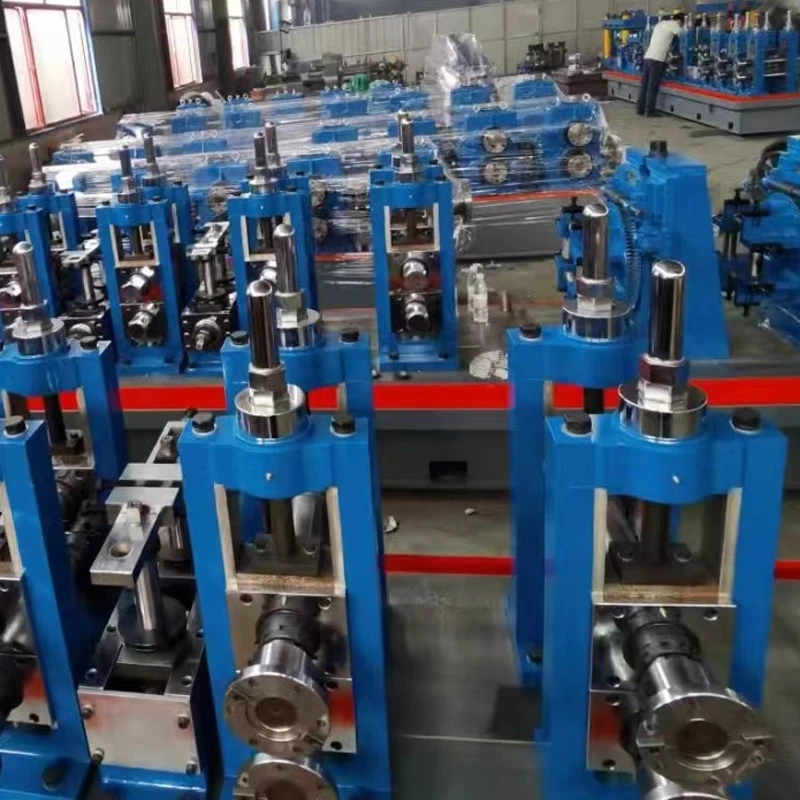roll forming suppliers
Understanding Roll Forming and Its Suppliers
Roll forming is a versatile and highly efficient manufacturing process that involves the continuous bending of a strip of metal into a desired shape. This technique is commonly used to produce metal profiles and components for a variety of industries, including construction, automotive, and appliance manufacturing. Given its importance, understanding roll forming suppliers and their offerings is crucial for businesses looking to leverage this technology.
The Roll Forming Process
The roll forming process begins with a flat strip of metal, typically steel or aluminum, which is fed through a series of rollers. Each roller gradually shapes the strip into the final profile. The process is continuous, meaning that the material can be processed at high speeds, leading to significant efficiency gains. Roll forming is ideal for creating long lengths of material with uniform cross-sections, making it suitable for applications such as roof panels, beams, and other structural components.
Importance of Choosing the Right Supplier
Choosing a reliable roll forming supplier is crucial for ensuring the quality and consistency of the final product. A good supplier should possess the necessary expertise and technology to accommodate varying requirements, from custom shapes to specific material types. Additionally, they should have the capacity to handle large production runs while maintaining quality control.
Key Factors to Consider When Selecting Roll Forming Suppliers
1. Experience and Expertise Suppliers with a long history in the roll forming industry often have a deep understanding of the process and can offer valuable insights. Look for suppliers who have experience in your specific industry to ensure they can meet your needs effectively.
2. Technology and Equipment The quality of the equipment used in the roll forming process can significantly impact the final product. Suppliers that invest in the latest technology are likely to provide better precision, faster production times, and more consistent results.
roll forming suppliers

3. Range of Materials Different projects may require different types of materials. A versatile supplier should be able to work with various materials, such as different grades of steel, aluminum, or even custom alloys.
4. Customization Capabilities Not all projects are the same, and sometimes you may require specific designs that are not readily available in the market. Ensure that the supplier you choose can offer customization services to meet your unique needs.
5. Quality Assurance A reputable supplier will have stringent quality control measures in place. Look for certifications or quality standards that the supplier adheres to, which can give you confidence in their products.
6. Delivery and Lead Times Timeliness is critical in manufacturing. Ensure that the supplier can meet your delivery deadlines and can scale production as necessary.
7. Customer Support Excellent customer service can make a big difference in your procurement experience. A responsive supplier who is willing to address any concerns promptly is invaluable.
The Role of Innovation
In recent years, the roll forming industry has seen significant advancements due to innovation. Many suppliers are incorporating automation and smart manufacturing technologies into their processes. These innovations not only enhance efficiency but also improve product quality and reduce waste.
Conclusion
Selecting the right roll forming supplier is vital for businesses looking to harness the advantages of this efficient manufacturing process. By taking into account factors such as experience, technology, customization capabilities, and quality assurance, companies can find a partner that meets their specific needs. As industries continue to evolve, staying ahead by collaborating with innovative suppliers will be key to maintaining a competitive edge in the market. Whether you're in the construction, automotive, or appliance industries, understanding your roll forming options will help you make informed decisions for your projects.
-
High Frequency Straight Seam Welded Pipe Production Line-BzZhou Xinghua Machinery Equipment Manufacturing Co., LTD.|Precision Welding, High EfficiencyNewsJul.30,2025
-
High Frequency Straight Seam Welded Pipe Production Line|BzZhou Xinghua|Precision Welding&EfficiencyNewsJul.30,2025
-
High Frequency Straight Seam Welded Pipe Production Line - BzZhou Xinghua|Precision Engineering&EfficiencyNewsJul.30,2025
-
High-Frequency Straight Seam Welded Pipe Production Line-BzZhou Xinghua Machinery Equipment Manufacturing Co., LTD.NewsJul.30,2025
-
High-Frequency Straight Seam Welded Pipe Production Line-BzZhou Xinghua Machinery Equipment Manufacturing Co., LTD.|Precision Manufacturing, High EfficiencyNewsJul.30,2025
-
High Frequency Straight Seam Welded Pipe Production Line-BzZhou Xinghua Machinery Equipment Manufacturing Co., LTD.|Precision Steel Pipe Manufacturing&Industrial EfficiencyNewsJul.29,2025


